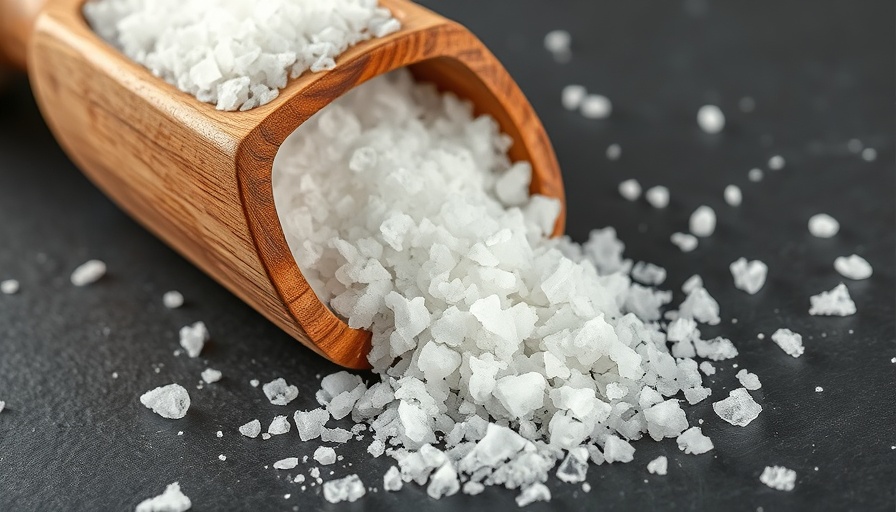
Understanding Salt and Potassium: A Modern Health Dilemma
Globally, physical inactivity leads to over 10 million years of healthy life lost, but dietary choices have an even larger impact—accounting for nearly 20 times that. High sodium intake is a major contributor to health issues among men aged 35-55, particularly those who are professionals or fitness enthusiasts. Not just a trivial concern, the amount of salt consumed today drastically exceeds what our bodies can handle. As recent discussions reveal, nearly 99.99 percent of the population fails to meet recommended sodium-potassium balances, often leading to life-threatening conditions such as hypertension and heart disease.
The Sodium-Potassium Imbalance
The average adult today consumes more than four times the body's natural tolerance for sodium, well over recommended limits set by the American Heart Association, which advocates for a daily intake below 1,500 milligrams. This imbalance has detrimental long-term effects, particularly for men focused on their health and fitness. Overconsumption of sodium not only weakens cardiovascular health but is also correlated with fatal health conditions such as stroke and kidney damage.
Why Potassium Matters
With an alarmingly low number of adults, less than 2%, achieving adequate potassium intake, the conversation shifts to the vital role this mineral plays in our overall health. Known for its ability to lower blood pressure, potassium is an essential nutrient that many are deficient in due to the shift toward processed foods. The evolution of our diets—from potassium-packed fruits and vegetables to sodium-laden fast foods—has left many without this crucial nutrient.
Improving Your Diet: Practical Steps
For health-conscious men, making simple adjustments to your diet can significantly boost potassium levels. Consider incorporating foods rich in potassium, such as bananas, spinach, and sweet potatoes. Meal planning that emphasizes whole, plant-based foods not only helps achieve necessary nutrient balances but also benefits overall health. As active individuals, integrating these potassium-rich foods can enhance workout performance and recovery, while better managing sodium intake.
Real-Life Benefits of Consuming Less Salt
Switching to potassium chloride as a salt substitute offers a compelling solution for those looking to reduce sodium without sacrificing flavor. By gradually swapping out regular salt for potassium-enriched alternatives, you can lower blood pressure and improve cardiovascular health. Furthermore, it can also help in weight management—a key consideration for fitness enthusiasts striving to maximize their health.
A Path Towards Healthier Choices
The direct correlation between high sodium diets and adverse health conditions is undeniable. Thus, recognizing the importance of potassium and making informed dietary changes can significantly enhance men’s health. Engaging in discussions around nutrition and lifestyle choices empowers you to become proactive in your health journey and inspire others in your circle to do the same.
 Add Row
Add Row  Add
Add 




Write A Comment